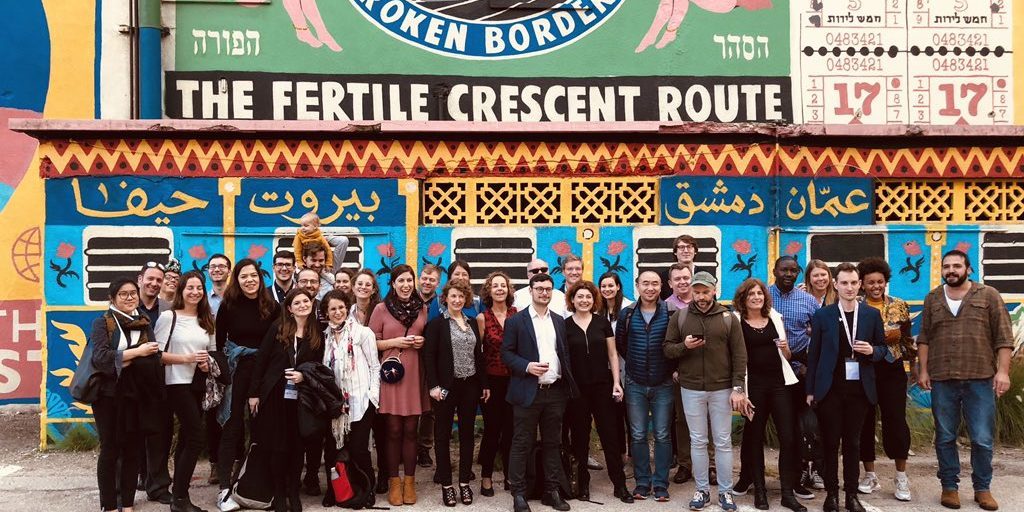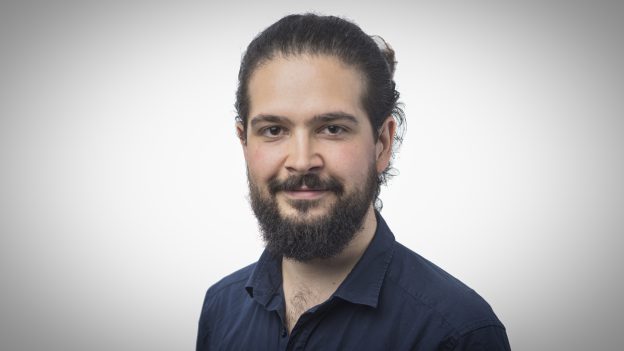
Conference shows potential of European AI research
Artificial Intelligence will change society worldwide: More than 60 researchers from a European research network show ethical and legal developments with their projects – and how these developments can be influenced. Representatives of the network met at the end of the conference and agreed on closer cooperation and exchange.
Berlin, 6 December 2018 – At the conference “Artificial Intelligence: ethical and legal implications”, organised by the Center for Cyber Law & Policy of the University of Haifa (CCLP) and the European Hub of the Global Network of Internet Society Research Centers (NoC), young researchers presented and discussed their projects. They spoke about the challenges that Artificial Intelligence poses to society – for example, who is liable when nursing robots are used or which ethical problems arise when prejudices are duplicated by technology.
“The current projects of the young researchers question traditional concepts such as autonomy, but also provide very practical solutions, such as how fairness can be designed for the programming of algorithms”, says Wolfgang Schulz, Research Director at the Humboldt Institute for Internet and Society (HIIG). Niva Elkin-Koren, Vice Director of the CCLP, stresses the importance of current research: “AI is still a work in progress. Therefore, legislators should be cautious in their efforts to regulate the use of AI before they fully understand the opportunities and risks”.
More than 60 scientists from South Africa, Australia and Nigeria took part in the conference from 28 to 30 November 2018. Most researchers work at European internet research institutes such as the Norwegian Business School in Oslo, the Nexa Center for Internet and Society in Turin and the Essex Law School and Human Rights Centre. These institutions are all members of the European Hub of NoC.
At the end of the conference representatives from the institutes of the European Hub met in Haifa for a roundtable discussion. Among other topics, they spoke out in favour of expanding their cooperation in joint research projects. “At the workshop it became clear how much Europe has to offer the world when it comes to better understanding how AI will change society, but also how society can influence these developments”, says Wolfgang Schulz. “The EU Hub will do even more in the future to provide a solid and neutral information base for policy decisions. In times of populist simplification and ignorance of scientific facts, this is becoming increasingly important”.
Further information:
The conference program: http://noc-europeanhub.net/wp-content/uploads/2018/10/AI-Legal-Ethical-Implications.pdf
About the NoC: http://networkofcenters.net, about the HIIG: https://www.hiig.de/
Press contact: Florian Lüdtke | phone: +49 30 200 760 82 | presse@hiig.de
About the Network of Centers
The Global Network of Internet and Society Research Centers (NoC) was launched by a group of academic centers – including the Alexander von Humboldt Institute for Internet and Society (HIIG) – in 2012 in recognition of the lack of internationally coordinated research and engagement activities in issues concerning the Internet and related technologies. The NoC is a collaborative initiative between academic institutions with a focus on interdisciplinary research on the development, social impact, policy implications, and legal issues concerning the Internet. This collective aims to increase interoperability between participating centers in order to stimulate the creation of new cross-national, cross-disciplinary conversation, debate, teaching, learning, and engagement regarding the most pressing questions around new technologies, social change, and related policy and regulatory developments. More information can be found at http://networkofcenters.net/about.
Within the NoC, the European Hub was founded in 2017 with the aim of strengthening European Internet research at the international level. The network currently consists of 26 research institutes in 15 countries.
About the HIIG
The Alexander von Humboldt Institute for Internet and Society (HIIG) researches the development of the internet from a societal perspective. The aim is to better understand the digitalisation of all spheres of life. As the first research institute in Germany to focus on on internet and society, HIIG has established an understanding that emphasises the embeddedness of digital innovations in societal processes. As node in the Global Network of Interdisciplinary Internet & Society Research Centers, an initiative of scientific institutions worldwide in the field of interdisciplinary research on internet and society, the institute is trying to develop a European perspective on digital transformation.
The HIIG was founded in 2011 by the Humboldt-Universität zu Berlin, the University of the Arts Berlin and the Social Science Research Center Berlin, in alliance with the Hans-Bredow Institute for Media Research in Hamburg as an integrated co-operation partner. The research directors of the institute are Prof. Dr. Jeanette Hofmann, Prof. Dr. Dr. h.c. Ingolf Pernice, Prof. Dr. Björn Scheuermann, Prof. Dr. Dr. Thomas Schildhauer and Prof. Dr. Wolfgang Schulz.

